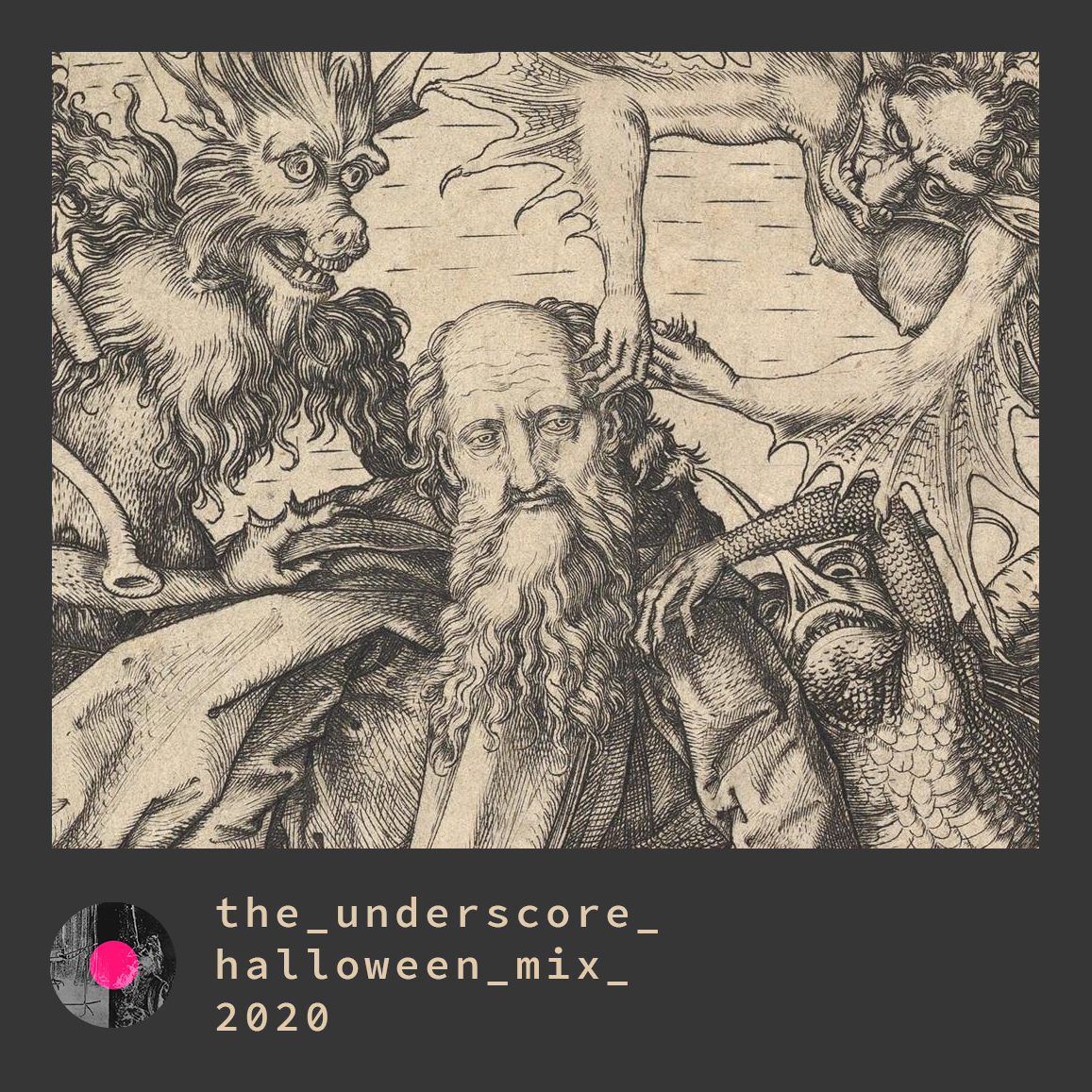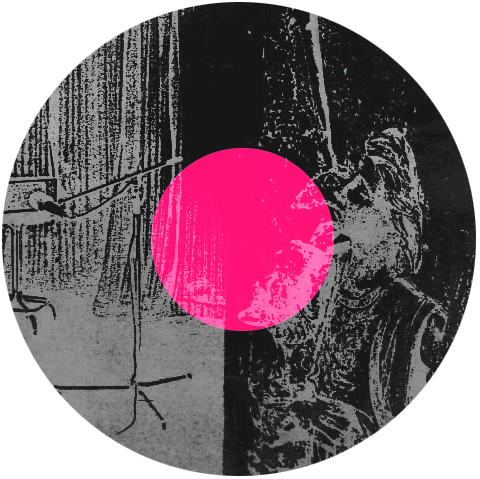Posts on: theory-fiction

the_underscore_halloween_mix_2020
Spooky, Gothic vibes in all shapes and sizes
theory-fictional pop-culture intersplicing
post-punk, gothic rock, darkside, industrial, trash
listen below
Far from needing theory’s help, music today is already more conceptual than at any point this century, pregnant with thoughtprobes waiting to be activated, switched on, misused.
– Kodwo Eshun, More Brilliant Than the Sun, p. -003.
Two weeks ago I was at the always-wonderful DIY Space for London attending the re-launch meeting of their Radio Collective. Things are still very hazy and new at the moment, but there are ambitions for DIY to become a kind of community radio hub similar to RTM in Thamesmead, and this weekend we’ll be doing some training sessions and potentially recording 30 minute snippets of everyone’s potential shows in order to patch together a kind of “DIY Space Radio Variety Show”. (Needless to say, if you’re interested in being involved, send me a DM/email.)
I’ve been meaning to get into radio and podcasting for a couple of months now, and this seemed like the perfect opportunity to really develop that interest. Specifically, I’ve been interested in using radio/podcasting as avenues for exploring theory and music in new ways – ways not typically afforded by conventional structures (e.g. academia, mainstream radio, my everyday life routines, etc.). 1) Theory doesn’t want to be centred in the academy. It doesn’t want to continually adhere to conventions of “in this essay I will argue that…” or only be read by professors. It doesn’t want to be produced in precarious, low-wage conditions. Theory is hypostatised, deadened, by the academy. 2) Music is deadened by the continual onslaught on our free time, our dream time. Music becomes an appendage to everything else. Something to walk to work to, to exercise to, to cook to. Always subordinated to an exterior function. Even when music appears to be centre stage – in the club, in the venue, in the pub – it, again, is hemmed in by an exterior function: profit, or more specifically, the logics of capital. What would it mean to actually put music first, to emphasise the (production) process of music rather than its effects? To vibrate with music’s plane of immanence? To genuinely, fully, deeply, be lost in music, caught in a trap?
The gambit of the hypothetical podcast/radio project is: what if we solve both these sets of problems by bringing theory and music together in some kind of productive melange? Sometimes I read beautifully written, challenging and intriguing theory, and I often wonder how it would sound to (carefully chosen) music. Remember all those scenes in your favourite TV shows, where some moving speech is made with some stirring strings intensifying underneath? Then the credits roll, another song plays. You think about all the songs you would put to credits music if you were a director. That you’d end a film with. Where the cut of the credits cuts into the music’s plane and intensifies it. I always think about songs like that; I think about how they could be same but different, creatively mashed together with something else (narratives, stories, cinematographies) to construct accelerating feedback loops that dissolve the music and the visuals into one another to such a degree it becomes impossible to think the two apart. What is Shrek without “All Star”, what is “All Star” without Shrek? And what is Shrek-All Star without the reaction to and memification of Shrek-All Star? There’s a kind of symbiotic mutation going on here continually corroding and infecting reality’s established boundaries: it becomes impossible to think of songs “in themselves” or memes “in themselves” because the open connectivity is built into their very production.
Now, these strange cultural loops aren’t necessarily positive things, and nor do they necessarily produce anything of genuine novelty, innovation and wonder (hence the continual tendency for reboots, returns, sequels, prequels, you name it). However, the sheer speed and intensity of the process does present opportunities for theory, and the chance (if not the guarantee) to produce things of genuine – not simply apparent – radicality and novelty through a process of what Deleuze and Guattari would call “deterritorialisation” or a “line of flight”. Consider the plugging in of theory/philosophy, the contours of its concepts and the flows and rhythms of its text, into the above circuit. The rhythms, breaks and cuts of the music slide over/under the rhythms, breaks and cuts of the text (and vice versa), enabling new connections and constructing new continuums of intensity and feedback loops. A new production: not theory plus music, not music plus theory, not the dead theory of the academy, but theory-music, theory-fiction, another accelerating mutation.
An experiment in theory-fiction radio, then, would not be about propping up either theory or music as they currently stand. It’s not about making theory fun, or making music “intellectual” (although these wouldn’t necessarily be bad by-products). Instead it’s about establishing a kind of continuous circuit between the two, where music mines the resources of theory and theory mines the resources of music. As Mark Fisher wrote in 2005:
The whole pulp theory/ theory-fiction thing was/is a way of doing theory through, not ‘on’, pop cultural forms. Nick Land was the key figure here, in that it was he who was able to hold, for a while, a position ‘within’ a university philosophy department whilst dedicatedly opening up connections to the outside. Kodwo Eshun is key as someone making connections the other way – from popular culture INTO abstruse theory. But what we all concurred upon was that something like jungle was already intensely theoretical; it didn’t require academics to judge it or pontificate upon it – the role of a theorist was as an intensifier.
Here’s another quote from Mark Fisher (from an interview with Simon Reynolds) on music as a kind of conceptual/theoretical resource, or “lab”:
Music became the centre of the culture because it was consistently capable of giving the new a palpable form; it was a kind of lab that focused and intensified the convulsions that culture was undergoing. There’s no sense of the new anywhere now. And that’s a political and a technological issue, not a problem that’s just internal to music.
The notion of music being a “lab” is an important one, I think, and neatly distils the cultural and political impetus behind theory-fiction radio. If we are today facing a crisis of the production of the new, then maybe theory shouldn’t obsess with unravelling hidden “truths” or critiquing dominant discourses in order to “tell it how it is” (a disposition that can facilitate the reduction of political praxis into a kind of negative micro-policing that is all too prevalent on Twitter), but instead seek to act as an intensifier. New worlds are always-already out there. As Keir Milburn has noted, remarking upon Jeremy Deller’s fantastic documentary Everybody in the Place, “there are songs in which you can literally hear the proof that we have the collective capacity to remake the world”. Music channels affects/intensities that are rhizomatically open-ended, refusing to be contained in any individual form, always fleeing, always travelling, always taking us somewhere else – there is a reason why music makes us daydream, livens up our walks to work with hallucinatory images and rhythm, makes us picture other worlds, acts as a “lab”. Theory(-fiction) shouldn’t seek to arrest that (in this case musical) movement or expose it, but actively flow with it, play with it, intensify it, thereby enhancing our collective capacities to act and potentially incubating what I have called elsewhere “psychedelic consciousness”. This is the hope of theory-fiction radio.
*
As all this all demonstrates, the idea of wiring theory and music together is nothing particularly novel. Indeed, just this week Robin Mackay over at Urbanomic unearthed an old tape of a “performance” by the infamous Cybernetic Culture Research Unit (CCRU) called Swarmachines at a conference in Manchester in 1996. It essentially involves members of the CCRU including Sadie Plant, Nick Land, and the late Mark Fisher reading a CCRU text (which can be found in the reader here) over some “premium mid-90s jungle”, cut together with all the primitive editing software mid-1990s personal computing afforded. Disparagingly for me, perhaps, the result is pretty poor, or at least dated; the CCRU collective barely seem to give the music space to breathe throughout the performance, crowding it out with their infamous brand of verbose theory-fiction. As one of the Soundcloud comments puts it, “the second-hand embarrassment is unbearable”; another pithily states “bro it’s a bunch of quotes over music there’s nothing great”. The balance, relationship and fusion between text and music here just doesn’t seem quite right. The hyphen in “theory-fiction” never quite materialises.
However, I can’t help but feel some sense of admiration for the intentions here. At the very least, it’s an interesting example that one can learn from and build off, demonstrating the narrow tightrope one must walk with theory-fiction. And as Mackay, himself a former CCRU associate, correctly argues in the podcast, the performance does “attest to the confluence of sound and text, or the mutual intensification of words and music, that was crucial to CCRU. And it’s continued to be important to many of us in various ways ever since then.” I’ve linked the podcast below if you want to listen:
Read More »
